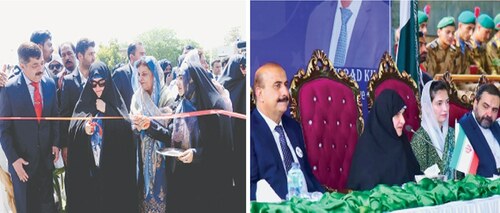Islamabad: Jan 26: Civil society members in general have rejected the proposed increase in fee for filing nomination papers for contesting national and provincial assembly elections.
The draft electoral reform bill prepared by the Election Commission of Pakistan (ECP) proposes an increase in the nomination fee from Rs4,000 to Rs50,000 for the National Assembly and from Rs2,000 to Rs25,000 for the Provincial Assembly.
“This is a retrogressive step in the garb of reform. Pakistan’s electoral field has already been captured by the super rich and most political parties are dependent on them. This so-called reform will further marginalise the party workers, who lack financial resources, as political parties don’t support the ticket holders financially,” Pattan Development Organisation, Women’s Concern Network, Sanj Swair, Tehreek Bahalie-sailabzadgan and Civil Society Movement observed in a joint statement.
Civil society organisations were of the view that the step will prevent resource deficit parties and middle class aspirants from contesting elections.
Moreover, this pro-rich measure will further reduce voters’ turnout in the next election, maintained civil society members.
Civil society members claimed that in the last six general elections, independent and small parties combined votes were half of those votes cast in favour of larger parties. Eliminating this factor from the electoral field will be disastrous, said a civil society member.
Terming the proposed increase in nomination fee as undemocratic and exclusive, civil society members appealed to the ECP to consider withdrawing this clause from the draft of electoral reform bill.
Meanwhile, Aurat Foundation has called upon political parties to include in their election manifesto, the commitment to amend the constitution to strengthen the status of women — in terms of human rights.
In a comprehensive report titled “Suggestions on women’s empowerment for election manifestos of political parties”, Aurat Foundation demanded a complete review of all the laws, including the ones enacted during military dictator General Ziaul Haq’s time.
It also proposed enactment of new laws and strengthening of the existing ones to address women and children specific issues, including domestic violence, honour killings, underage marriages and giving away of women and girls in compensation to resolve disputes.
Aurat Foundation also recommended special measures for women victims or survivors of gender based violence, including arrest and trial of killers and security of women survivors during a trial through a witness protection programme.














































Dear visitor, the comments section is undergoing an overhaul and will return soon.